Universitas Gadjah Mada (UGM) actively advances conservation and the sustainable utilization of aquatic ecosystems through diverse programmes, including river clean-ups, lake fish releases, coral reef restoration, and mangrove planting. These programs, conducted in collaboration with stakeholders such as local communities, MSMEs, and international participants, aim to preserve biodiversity, restore ecosystems, and support sustainable oceans, seas, lakes, rivers, and marine resources management. From intertidal sampling at Porok Beach to turtle conservation at Pelangi Beach, UGM integrates education, community engagement, and environmental stewardship, fostering long-term ecological and socio-economic benefits across Indonesia’s rich aquatic landscapes.
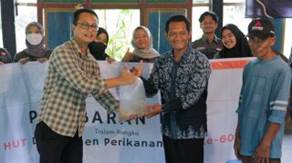

The UGM Fisheries Department conducted seed stocking activities in several rivers and ponds in Yogyakarta. The activity aims to develop fisheries resources, namely increasing biodiversity, preserving local economic species, and realising the sustainability of fisheries and aquaculture management.
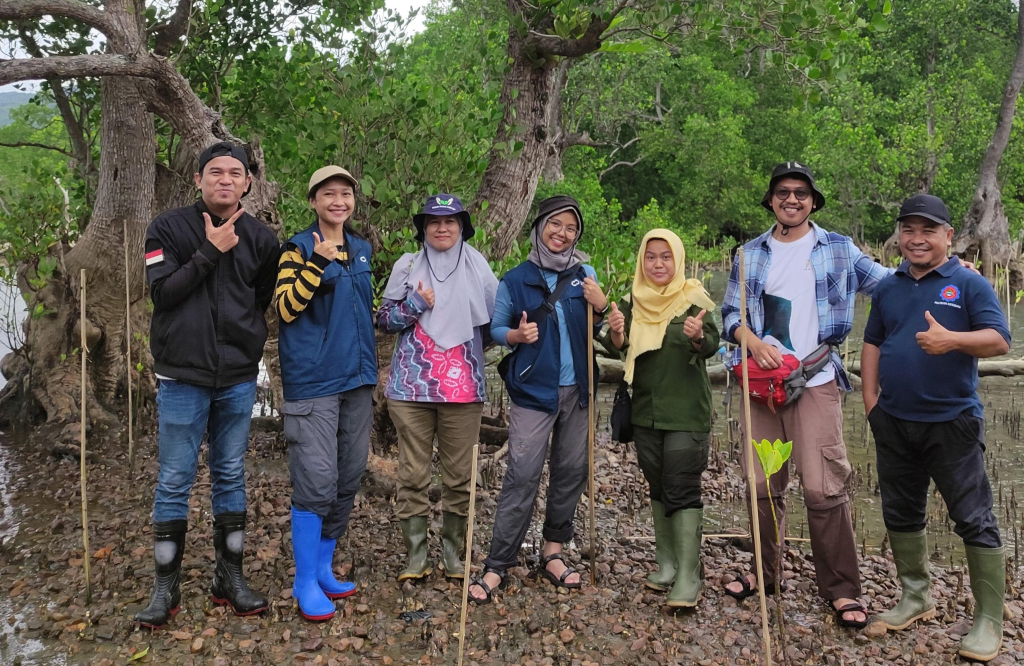
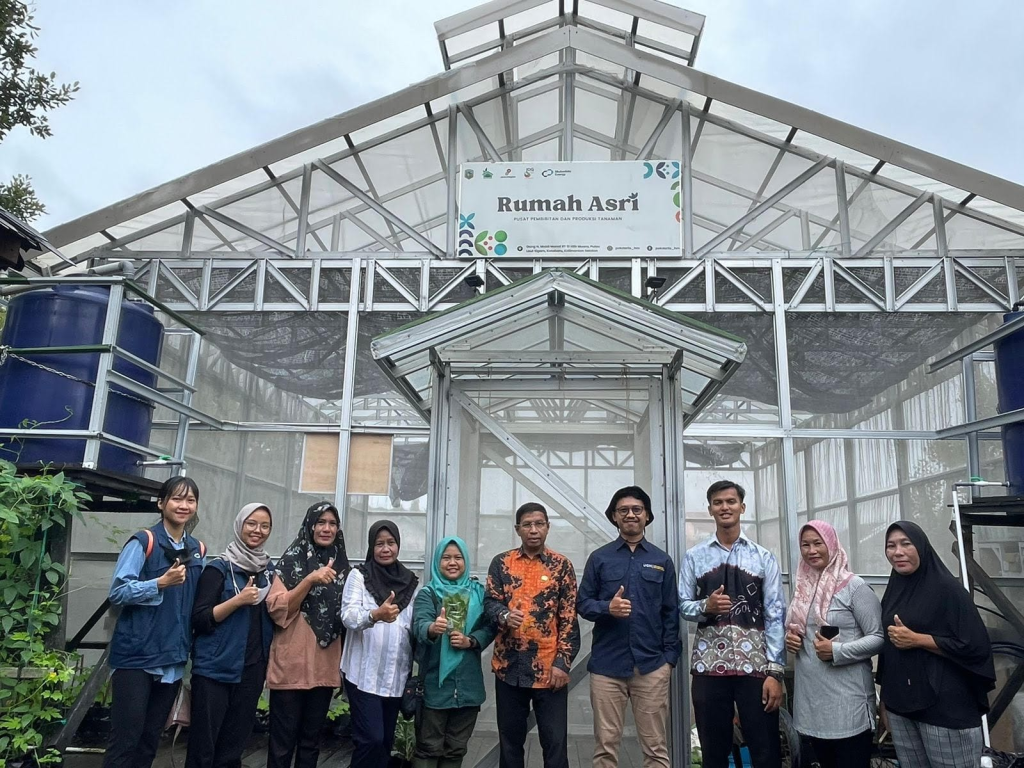
Representatives from UGM and local MSMEs directly support and promote the conservation and sustainable utilization of sea and marine resources in Kotabaru, South Kalimantan. UGM lecturers from the Faculty of Biology worked with local stakeholders to empower costal communities through programs such as mangrove planting, biodiversity assessments, and waste management. These initiatives involved partnerships with Pokdarlis (Kelompok Sadar Lingkungan Asri), local MSMEs like Hilir Muara Cinta Bumi, and the Bank Sampah (Waste Bank). Programs included building greenhouses, optimizing composters, and supporting local enterprises in obtaining BPOM permits for product development. These efforts not only address environmental conservation but also align with national programs like Desa PROKLIM (Climate Village Program) and community-based blue carbon ecosystem preservation, ensuring long-term ecological and economic benefits for vulnerable coastal populations.
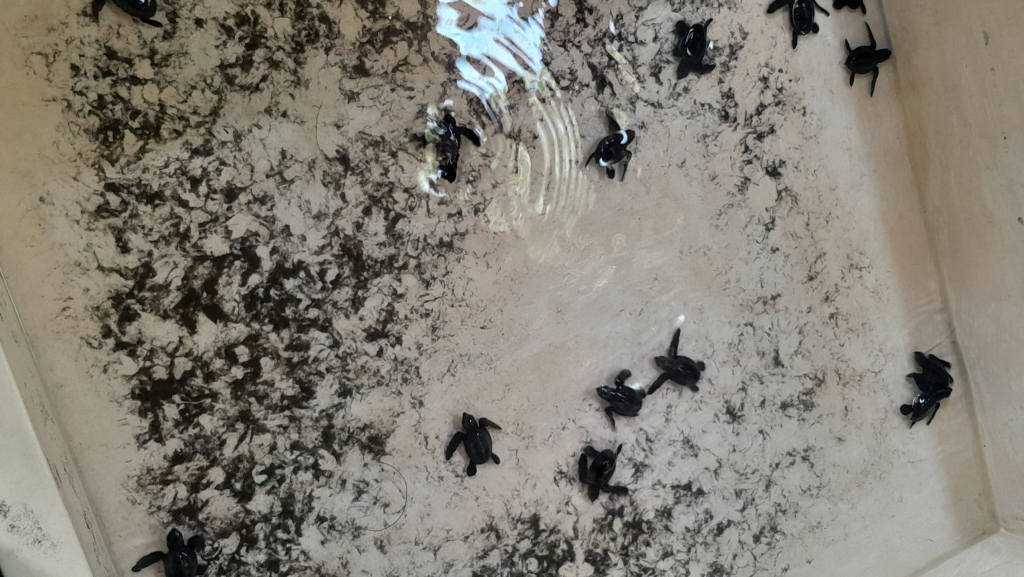
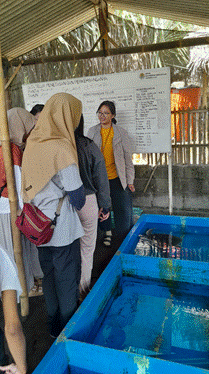
Sea turtles, ancient reptiles with seven species existing worldwide—six found in Indonesia—face threats like illegal hunting and exploitation for their shells, making conservation efforts crucial. On May 28, 2023, members from Matalabiogama, a nature enthusiast group within the Faculty of Biology UGM, visited Pelangi Beach to learn about sea turtle conservation, focusing on the olive ridley turtle (Lepidochelys olivacea).The group engaged in educational activities at the conservation center and planted pandan along the coastline. This program aims to preserve and balance ecosystems, with hopes that similar initiatives will continue to expand through collaborations with other organizations, potentially leading to public events that further promote sea turtle conservation.

As part of their community service, UGM students collaborated with Bengkulu University on coral reef conservation using bioreeftek , a type of artificial reef developed by Indonesia’s Ministry of Marine Affairs and Fisheries. The project utilized natural materials, specifically coconut shells, abundant in the region, to create cost-effective solutions for the community. The project took place off the coast of Apoho Village, Enggano and aimed to restore damaged coral reefs, which were identified during environmental assessments as being impacted by human activities like construction, fishing, and tidal changes. This conservation effort supports the revitalization of coral ecosystems, essential for Indonesia, a nation heavily reliant on its aquatic resources. As the world’s leading beneficiary of coral reef risk reduction, Indonesia stands to gain significantly from such sustainable actions to protect its marine ecosystems.
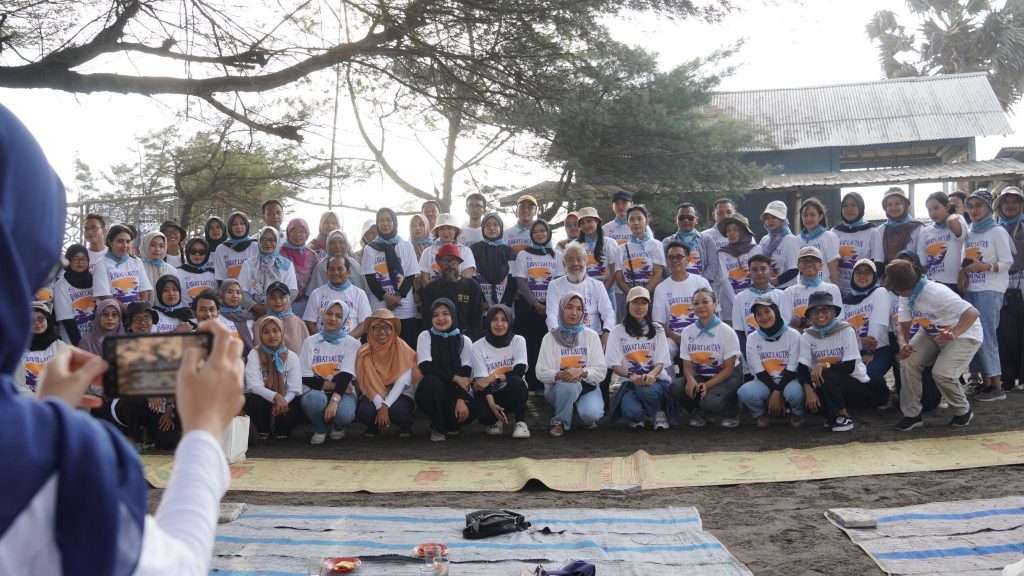
PSPD UGM, together with Suryakanta Institute and Circular School Program Partnership (CSPP), organized the Rantai Komang Trip by collaborating with the Yogyakarta environmental community, Garduaction (Garbage Care and Education) to support and promote conservation and the sustainable utilization of oceans, seas, and coastal resources. Several agendas include managing waste on the Parangkusumo coastline into finished goods ranging from lightweight bricks, paving blocks, children’s toys, and flower pots to eco enzymes.
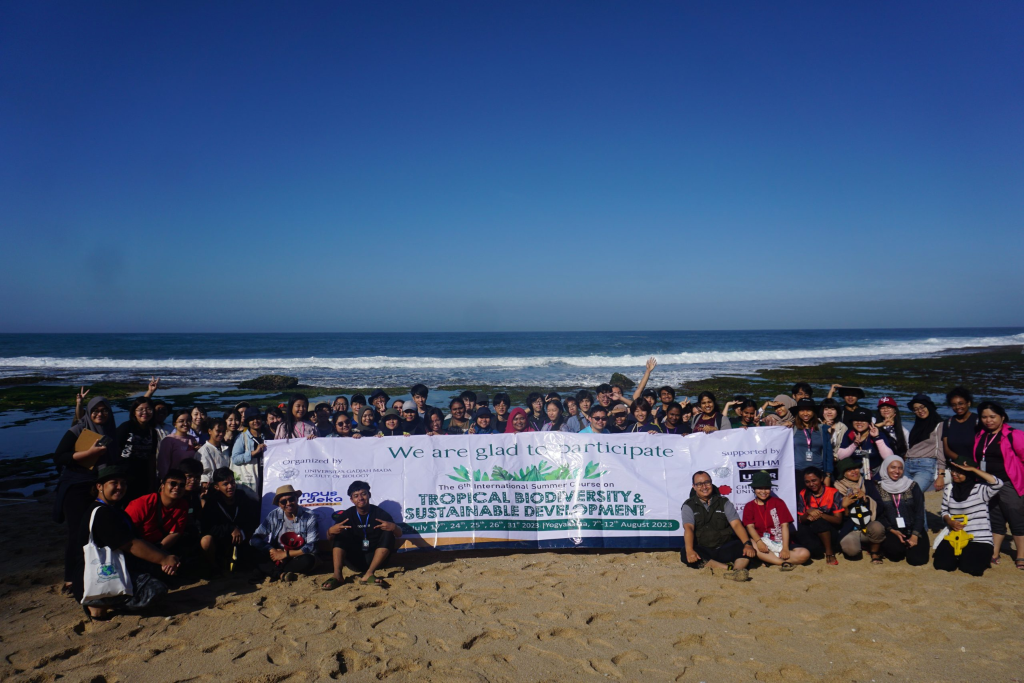
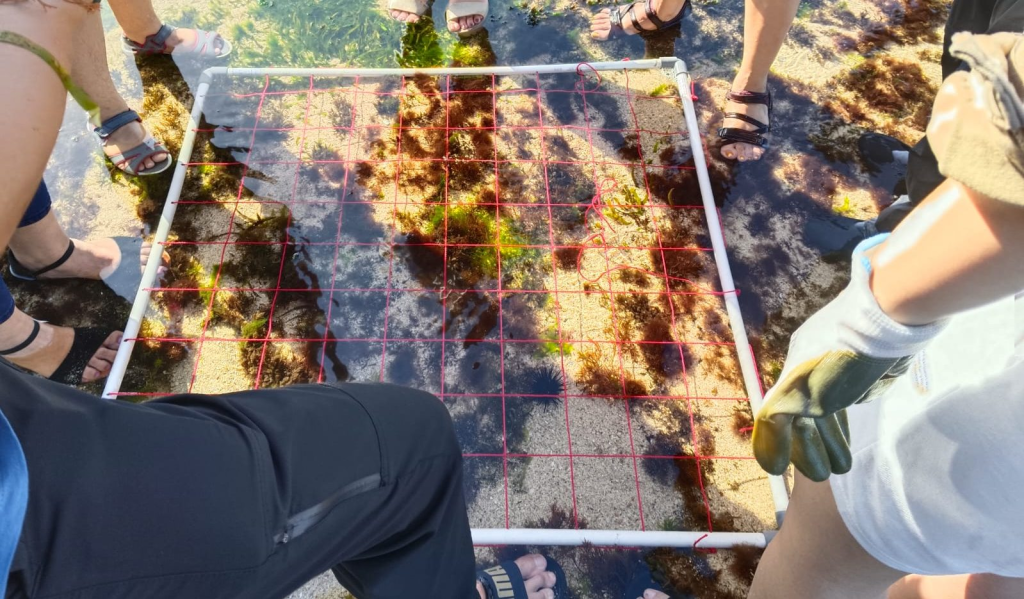
The 6th International Summer Course on Tropical Biodiversity and Sustainable Development, organized by the Faculty of Biology UGM, held an exciting event featuring intertidal sampling at Porok Beach to support and promote conservation of coastal ecosystems. The Summer Course aims to provide an immersive learning experience for young researchers, students, and enthusiasts interested in tropical biodiversity and sustainable development. This year’s program attracted participants from diverse backgrounds, fostering cross-cultural cooperation, knowledge exchange, and a shared commitment to sustainability.

In celebration of the Faculty of Law’s Dies Natalis, UGM emphasized conservation and the sustainable utilization of lake ecosystems through a collaborative fish release initiative at Wisdom Park Lake. A total of 1,946 catfish, 1,949 tilapia, and 2,022 pomfret were released to enhance biodiversity and support the ecological balance of the lake. This event brought together prominent alumni, including the Coordinating Minister for Political, Legal, and Security Affairs, Prof. Dr. H. M. Mahfud MD, the UGM Rector, the Dean of the Faculty of Law, UGM Residence General Manager, the band Padi Reborn, and alumni from the Faculty of Law. The initiative not only fostered collaboration but also underscored the importance of maintaining sustainable aquatic ecosystems.

UGM Peduli, one of the student-initiated movements on campus, demonstrated its commitment to the conservation and sustainable utilization of lakes with a cleanup action at Wisdom Park Lake on June 17th. Seventy participants worked to remove inorganic waste from the lake and surrounding rivers while also creating biopores to enhance water absorption and ecosystem health. This action not only addressed environmental concerns but also served as a call to the academic community to take greater responsibility for preserving the lake’s ecosystem.
References:
- Promote conservation of the River
- Promote Conservation of Sea and Marine Resources
- Matalabiogama Organises Turtle Conservation Education at Pelangi Beach
- Coral Reef Conservation by KKN-PPM UGM 2023 Students in Enggano Island, North Bengkulu
- Mangrove Conservation and Clean Beach
- Participants of the 6th International Summer Course on Tropical Biodiversity
- Releasing freshwater fish fry at Widom Park Lake UGM to celebrate the anniversary of the Faculty of Law
- Wisdom Park Clean-Up Activity
